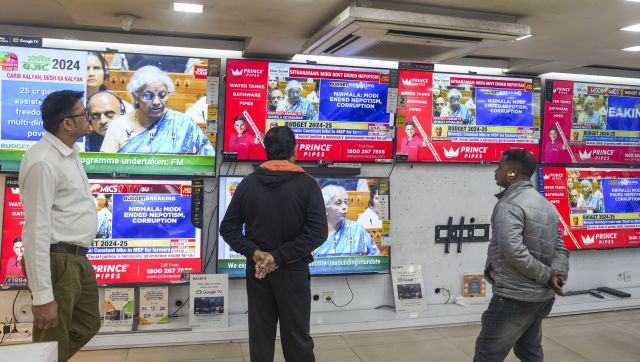It may not have had any big bang announcements, but the interim Budget delivered by Finance Minister Nirmala Sitharaman is significant for a multitude of reasons. The finance minister delivering her sixth Budget speech in a row, a record she shares with
Morarji Desai , said that the Narendra Modi government was working to make India a ‘Viksit Bharat’ by 2047. We take a closer look at what does Viksit Bharat mean? And what was spoken of it in the Budget? Viksit Bharat, explained Viksit Bharat translates to Developed India. In December last year, Prime Minister Narendra Modi had outlined this vision of a Viksit Bharat @2047, in the 100th year of independence. The vision encompasses various aspects of development, including economic growth, social progress, environmental sustainability, and good governance. At the time, PM Modi had said that for the country to be truly developed, it needed the participation and engagement of the youth in formulating plans on a national level. He emphasised the pivotal role of educational institutions in achieving this goal. He had also stated that there were four pillars for Viksit Bharat — India’s nari Shakti (women power), yuva Shakti (youth), the farmers and the poor families of India. Also read: Big takeaways from Budget: What Nirmala Sitharaman said on taxes, economy, fiscal deficit Viksit Bharat mantra in Budget In line with PM Modi’s dream, Finance Minister Nirmala Sitharaman also included Viksit Bharat in her Budget speech. She said, “Our vision for Viksit Bharat is that of a prosperous Bharat… in harmony with nature and modern infrastructure, and providing opportunities for all to reach their potential. The next five years will see unprecedented development and golden moments to realise the goal of a developed India.” She added, “The trinity of demography, democracy and diversity backed by ‘Sabka Prayas’ has the potential to fulfil aspirations of every Indian.” During her Budget speech, she said that for the country to realise this dream of Viksit Bharat by 2047, a provision of Rs 75,000 crore as a 50-year interest free loan has been proposed to support reforms initiated by the state governments. [caption id=“attachment_13677862” align=“alignnone” width=“640”] Union Finance Minister Nirmala Sitharaman presents the Interim Budget 2024 in the Lok Sabha, at Parliament House in New Delhi. PTI[/caption] The finance minister also announced that the Centre would form a high-powered committee for an extensive consideration of the challenges arising from fast population growth and demographic changes. The committee will be mandated to make recommendations for addressing these challenges comprehensively in relation to the goal of ‘Viksit Bharat’. She also highlighted that the government was focusing on addressing systemic inequalities and placing emphasis on outcomes so that socio-economic transformation is achieved, as per news agency PTI. The finance minister further added that minimum support prices for annadatas (farmers) had been increased periodically and appropriately. “We are addressing systemic inequalities that had plagued our society. We focus on outcomes and not on outlays so that the socio-economic transformation is achieved,” she said. Sitharaman presented the interim Budget during the Budget session of Parliament, the last of the present Lok Sabha, before the general election likely to be held in April-May. The new government will present the Budget in July. After Sitharaman’s speech, in reaction, Prime Minister Narendra Modi said that it was “innovative” and was a guarantee to strengthen the foundations of a Viksit Bharat (developed India) by 2047. With inputs from agencies
Finance Minister Nirmala Sitharaman in the interim Budget said the government was working to ensure a ‘Viksit’ (developed) India by 2047 and has taken several steps to initiate next-generation reforms to boost growth
Advertisement
End of Article


)

)
)
)
)
)
)
)
)



